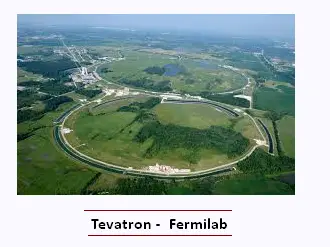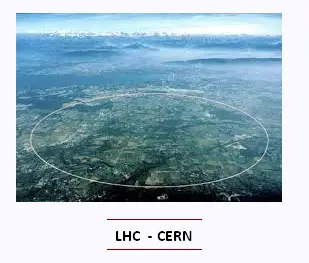Nuclear Physics
The nucleus
Radioactivity
Applications
Particle accelerators
© The scientific sentence. 2010
|
Nuclear Physics &
Particle Physics
Research accelerators
Large particle accelerators are used in research around the world.
They are a technology for research. Accelerator-based experiments are the
tool for studying the fundamental constituents of matter and the structure of nuclei.
The world’s two largest accelerator facilities are Fermilab and CERN.
1. Fermilab

Fermi National Accelerator Laboratory (Fermilab),
located outside Batavia, about 40 miles west of Chicago, Illinois. It is a United States Department
of Energy national laboratory specializing in high-energy particle physics.
Fermilab's Tevatron was a particle accelerator; at 3.9 miles (6.4 km)
in circumference. It was the world's fourth-largest particle accelerator.
The Tevatron of Fermilab was a circular particle accelerator in which protons or antiprotons are
raised to energies of a few trillion electron-volts.
It was shut down in 2011.
2. CERN

The European Organization for Nuclear Research , known as CERN is a European research
organization that operates the largest particle physics laboratory in the world. It is located near Geneva, Switzerland.
The CERN is established in 1954, the organization is based in a northwest suburb of Geneva
on the Franco–Swiss border. It is also the birthplace of the World Wide Web.
CERN operates a network of six accelerators and a decelerator. Among them
two linear accelerators that generate low energy particles: protons to 50 MeV,
and heavy ions at 4.2 MeV/u, and the Large Hadron Collider (LHC), which is
27 km in circumference.
The LHC tunnel is located 100 metres underground, in the region between the Geneva International
Airport and the nearby Jura mountains. It uses the 27 km circumference circular tunnel.
Experiments are performed on the collider to study particle collisions,
such as proton-proton collisions.
|
|